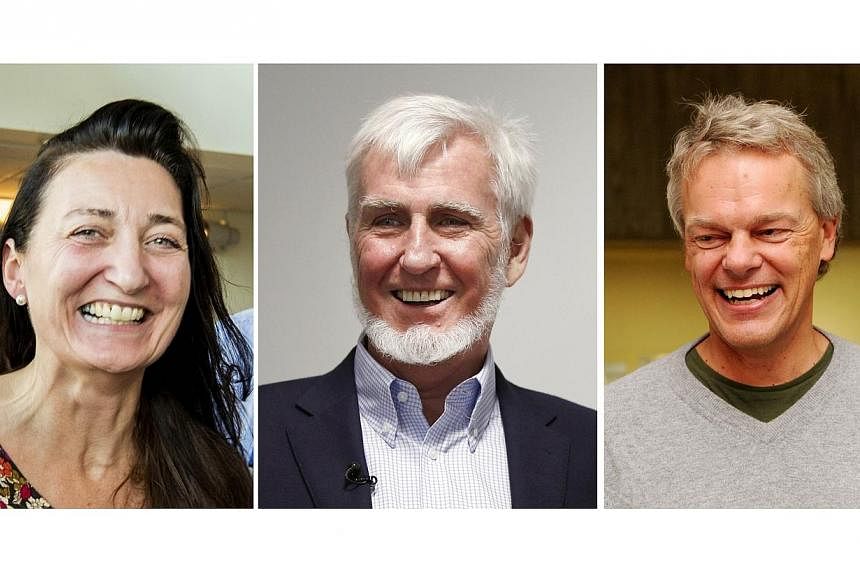Have you ever wondered how you manage to find your car in the carpark of a new shopping mall? How does the brain create and memorise spatial maps so that one doesn't get lost?
The answer lies in the work of three neuroscientists who jointly won the Nobel Medicine Prize on Monday.
British-American researcher John O'Keefe won the Nobel Medicine Prize with Norwegian couple May-Britt and Edvard Moser for their discoveries of cells that constitute an inner positioning system in the brain.
For a more detailed explanation of their work, read scientist Luc Henry's piece from The Conversation here.
Experts say the winners' work on the brain's mapping system will lead to a better understanding of diseases such as Alzheimer's and other forms of dementia.
In Singapore, there are 38,000 people with dementia, with the number set to increase to 92,000 by 2030.
"If these cells disappear, we can't manage to find our way," Mr Moser told Norwegian public service broadcaster NRK. "That's what happens to Alzheimer's patients. The first symptom they have is that they can't manage to find their way."
Five interesting things about the Nobel Prize
1. Will Snowden face off the Pope?
The Nobel Peace Prize, which will be announced on Friday, is the most controversial award this year.
This year saw a record 278 peace prize nominations and, while the list is secret, some names have been revealed by their sponsors, including US whistleblower Edward Snowden, Pope Francis and 17-year-old Pakistani teenager Malala Yousafzai.
The Nobel season kicked off on Monday, Oct 6, with the announcement of the medicine prize, and followed by the physics prize on Tuesday going to three Japanese-born researchers Isamu Akasaki, Hiroshi Amano and Shuji Nakamura for inventing the LED lamp.
The chemistry prize announced on Wednesday was won by scientists Martin Karplus, Michael Levitt and Arieh Warshel for devising computer models to simulate chemical processes.
The literature prize will be announced on Thursday, the peace prize on Friday, and economics prize on Monday, Oct 13.
Follow @STForeignDesk on Twitter for live tweeting of the Nobel Prize announcements.
2. Being married adds an advantage
Norwegian scientists May-Britt and Edvard Moser, co-winners of this year's Nobel Medicine Prize, are the fifth couple to win a Nobel since the prize began in 1901, and the fourth to win one together.
When asked about the role of marriage in her research, Mrs May-Britt Moser told Agence-France Presse: "And to be able to discuss this when you get an idea on the spot instead of (having to) plan a meeting in one or two or three weeks, that makes a huge difference."
3. The Nobel snubs
Only two people have declined the award in the Nobel Prize's 113-year history. French writer Jean-Paul Sartre declined the prize in 1964 because he had consistently declined all official honours, according to the Nobel Prize website.
Vietnamese leader Le Duc Tho was the second person to decline the Nobel Prize. He refused to share the 1973 Nobel Peace Prize with US Secretary of State Henry Kissinger with whom he had negotiated the ceasefire accord to end the Vietnam conflict.
4. The youngest Nobel laureate
The youngest-ever laureate was Australia-born Lawrence Bragg, who was 25 when he received the Physics award in 1915.
5. Prize money
Alfred Nobel left most of his estate, worth more than 31 million Swedish kronor (approximately 1,702 million Swedish kronor today), to be converted into a fund and invested in "safe securities". The income from the investments was to be "distributed annually in the form of prizes to those who during the preceding year have conferred the greatest benefit on mankind".
The amount of the prize money for the 2014 award is set at 8 million Swedish kronor (S$1.4 million).

